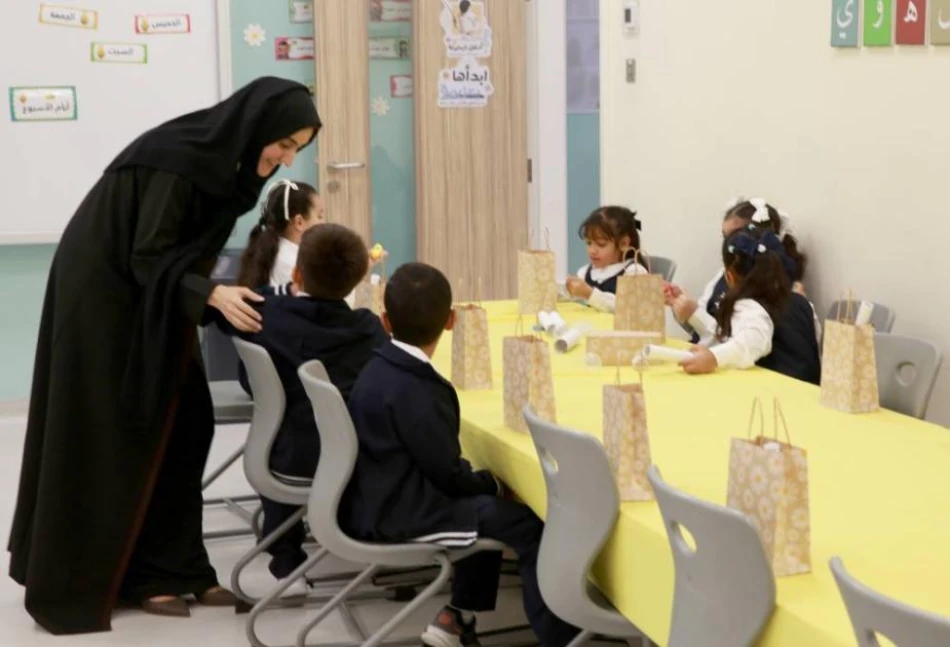
Zayed Educational Authority Unveils New Behavioral Policies for Students
UAE Schools Launch 2025 Academic Year with "From Skills to Leadership" Vision
The United Arab Emirates has kicked off its 2025 academic year with renewed ambitions to transform its education system into a global leader. At Zayed Educational Complex in Sharjah, students returned to classrooms Monday under the Ministry of Education's new motto "From Skills to Leadership," signaling a strategic shift toward competency-based learning that could reshape how the Gulf nation prepares its workforce for an increasingly competitive global economy.
Strategic Educational Repositioning
The Ministry of Education's choice of slogan reflects more than ceremonial rhetoric—it represents a calculated pivot toward skills-driven education that aligns with the UAE's Vision 2071 goals. By emphasizing the progression "from skills to leadership," educational authorities are acknowledging that technical competency alone won't secure the nation's economic future in an era of artificial intelligence and automation.
This approach mirrors successful educational transformations in Singapore and South Korea, where governments invested heavily in reshaping curricula to prioritize critical thinking, creativity, and leadership development alongside traditional academic subjects. The UAE's timing appears deliberate, coming as regional competitors like Saudi Arabia pour billions into educational infrastructure through their Vision 2030 initiatives.
Building Discipline-First Learning Environments
School administrators at Zayed Educational Complex prioritized behavioral guidelines and institutional respect during orientation sessions—a foundation that educational research consistently links to academic achievement. This emphasis on discipline and responsibility creates the structured environment necessary for the more ambitious skill-building objectives to succeed.
The focus on cooperation and belonging addresses a critical gap in many rapidly modernizing education systems, where technological advancement can overshadow the social-emotional learning that produces effective leaders.
Market Implications for UAE's Knowledge Economy
For investors and business leaders, the UAE's educational repositioning carries significant implications. The country's push toward leadership development suggests recognition that its future competitive advantage lies not in being a regional hub for foreign expertise, but in cultivating homegrown talent capable of driving innovation.
This shift could accelerate the UAE's transition from a service-based economy dependent on expatriate professionals to one where Emirati nationals lead key sectors. Companies operating in the UAE may need to adjust their long-term hiring strategies and talent development programs to align with this emerging educational philosophy.
Early Indicators of Success
Initial responses from parents and educators suggest strong buy-in for the new approach. Parent testimonials emphasize step-by-step support and passion for learning—language that indicates families understand their role in the broader educational transformation.
Teacher Aliya Al-Mutawa's comments about creating "inspiring educational environments" and preparing students for "future challenges" demonstrate that frontline educators grasp the strategic importance of their mission beyond traditional instruction.
Regional Educational Competition Intensifies
The UAE's "Skills to Leadership" initiative arrives as Gulf states increasingly compete for educational excellence. Qatar's Education City and Saudi Arabia's NEOM university projects represent alternative models for knowledge economy development, making the UAE's success or failure with this approach particularly consequential.
Unlike these mega-project approaches, the UAE appears to be betting on systemic transformation of existing institutions—a potentially more sustainable but challenging path that requires consistent execution across thousands of schools and hundreds of thousands of students.
Most Viewed News

 Omar Rahman
Omar Rahman






